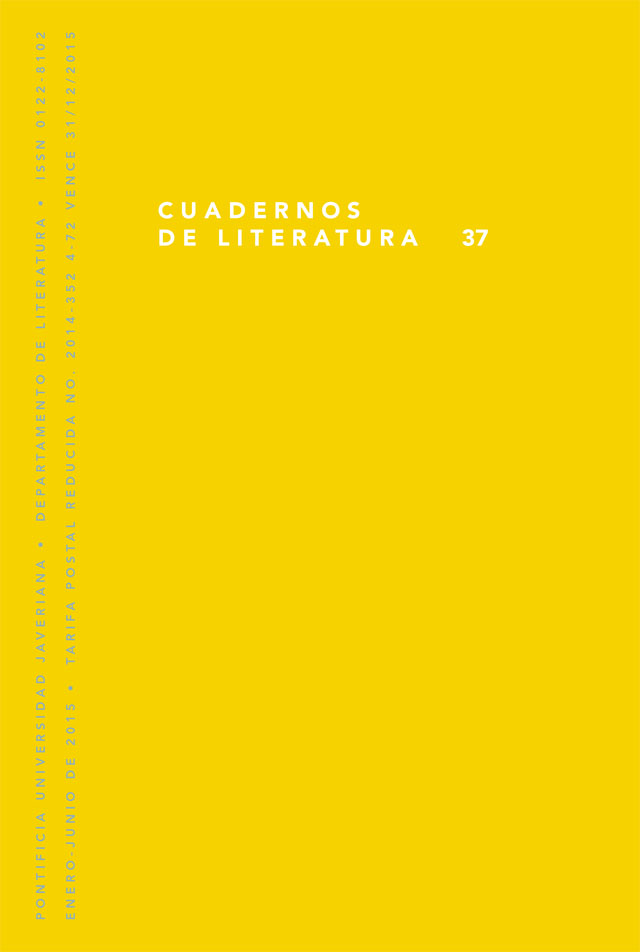Resumo
Este artículo estudia el papel de lo sagrado y la religión en el desarrollo de la novela hispanoamericana. González examina la narrativa de Vallejo como parte de las narrativas desacralizadoras del postboom, que respondieron a las novelas enciclopédicas y totalizadoras del boom resistiéndose a la tendencia moderna de hacer de los textos literarios textos sagrados, fuentes de revelación de saberes trascendentes sobre los orígenes de la nación. A través de su reflexión sobre las manifestaciones estéticas de la desacralización en Vallejo, González no solo sitúa a Vallejo en el contexto más amplio de la literatura hispanoamericana, sino que aporta también una manera de aproximarse a sus posturas antirreligiosas.
El material gráfico analizado o directamente referido en el artículo, debe ser de alta calidad, presentarse en hojas individuales, en orden secuencial, y con una resolución mínima de 300 dpi en formatos JPG o TIFF. Los cuadros, diagramas, fotografías y gráficas deben estar acompañados de sus respectivos pies de foto, indicando la fuente de la que fueron tomadas, el título y su ubicación dentro del texto. Es responsabilidad del autor obtener el derecho de autor y permiso para reproducir las imágenes que desea utilizar en sus artículos. Este permiso debe ser para su reproducción impresa y online. Cuadernos de Literatura no reproduce cualquier imagen sin su respectiva autorización.
La revista Cuadernos de Literatura se encuentra registrada bajo la licencia Creative Commons Reconocimiento 4.0 Internacional. Por lo tanto, esta obra se puede reproducir, distribuir y comunicar públicamente en formato digital, siempre que se reconozca el nombre de los autores y a la Pontificia Universidad Javeriana. Se permite citar, adaptar, transformar, autoarchivar, republicar y crear a partir del material, para cualquier finalidad (incluso comercial), siempre que se reconozca adecuadamente la autoría, se proporcione un enlace a la obra original y se indique si se han realizado cambios. La Pontificia Universidad Javeriana no retiene los derechos sobre las obras publicadas y los contenidos son responsabilidad exclusiva de los autores, quienes conservan sus derechos morales, intelectuales, de privacidad y publicidad.
El aval sobre la intervención de la obra (revisión, corrección de estilo, traducción, diagramación) y su posterior divulgación se otorga mediante una licencia de uso y no a través de una cesión de derechos, lo que representa que la revista y la Pontificia Universidad Javeriana se eximen de cualquier responsabilidad que se pueda derivar de una mala práctica ética por parte de los autores. En consecuencia de la protección brindada por la licencia de uso, la revista no se encuentra en la obligación de publicar retractaciones o modificar la información ya publicada, a no ser que la errata surja del proceso de gestión editorial. La publicación de contenidos en esta revista no representa regalías para los contribuyentes.
El retiro de un artículo se solicitará por escrito con un documento impreso al Comité Editorial y se formaliza con la respuesta oficial del Comité.


